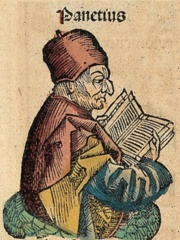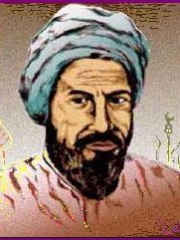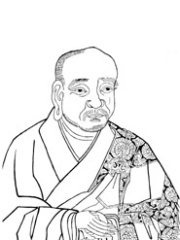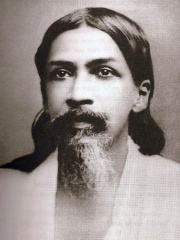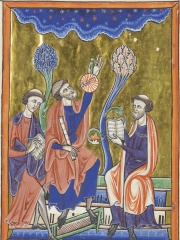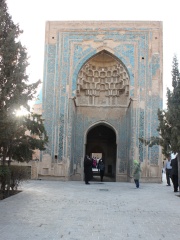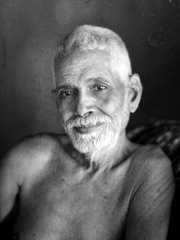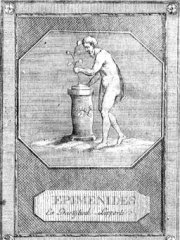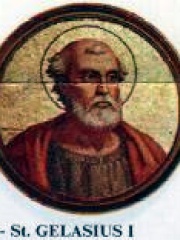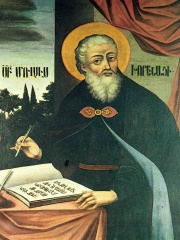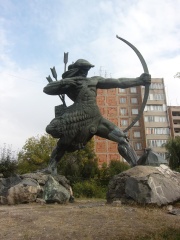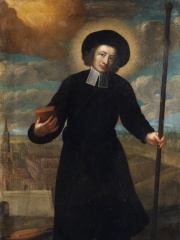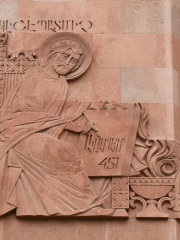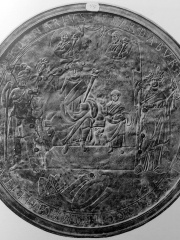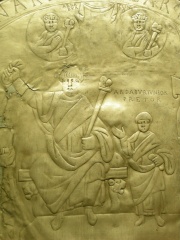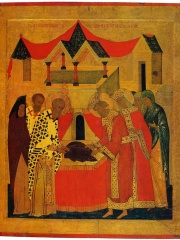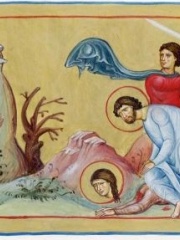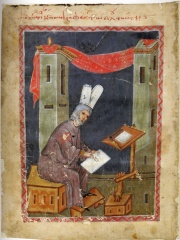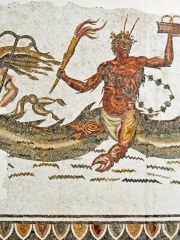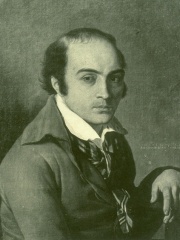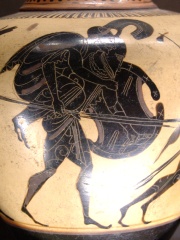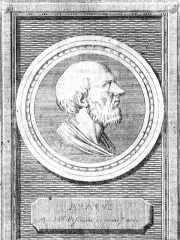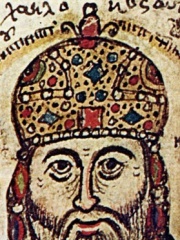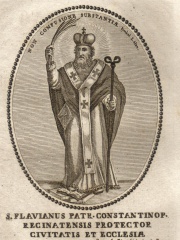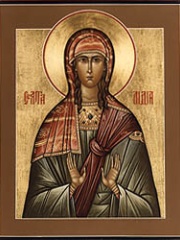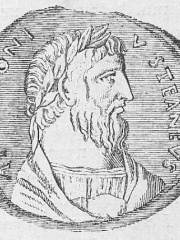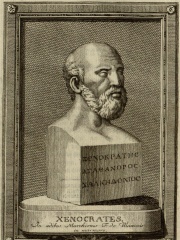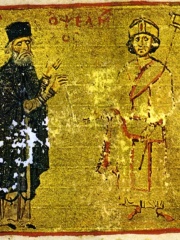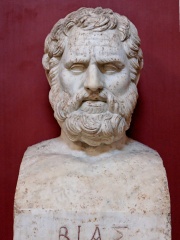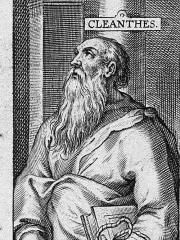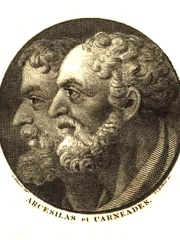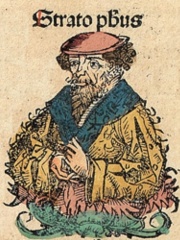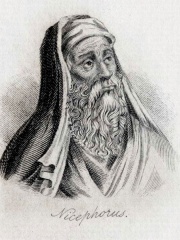Philosopher
Priscus
410 - 471

 Priscus
Priscus
Priscus of Panium (; Greek: Πρίσκος; 410s/420s AD – after 472 AD) was an Eastern Roman diplomat and Greek historian and rhetorician (or sophist). Read more on Wikipedia
His biography is available in 39 different languages on Wikipedia. Priscus is the 279th most popular philosopher (down from 277th in 2024), the 275th most popular biography from Türkiye (down from 257th in 2019) and the 22nd most popular Turkish Philosopher.
Priscus was a 5th century Roman senator who wrote a history of the Western Roman Empire.
Memorability Metrics
Page views of Priscus by language
Among Philosophers
Among philosophers, Priscus ranks 279 out of 1,267. Before him are Panaetius, Ibn al-Nafis, Karl Robert Eduard von Hartmann, Aśvaghoṣa, Andronicus of Rhodes, and Ammonius Saccas. After him are Sri Aurobindo, Abraham ibn Ezra, Bayazid Bastami, Ramana Maharshi, Bruno Latour, and Epimenides.
Most Popular Philosophers in Wikipedia
Go to all RankingsPanaetius
185 BC - 110 BC
HPI: 71.45
Rank: 273
Ibn al-Nafis
1212 - 1289
HPI: 71.41
Rank: 274
Karl Robert Eduard von Hartmann
1842 - 1906
HPI: 71.31
Rank: 275
Aśvaghoṣa
80 - 150
HPI: 71.30
Rank: 276
Andronicus of Rhodes
100 BC - 60 BC
HPI: 71.28
Rank: 277
Ammonius Saccas
175 - 242
HPI: 71.27
Rank: 278
Priscus
410 - 471
HPI: 71.23
Rank: 279
Sri Aurobindo
1872 - 1950
HPI: 71.21
Rank: 280
Abraham ibn Ezra
1089 - 1167
HPI: 71.20
Rank: 281
Bayazid Bastami
804 - 874
HPI: 71.16
Rank: 282
Ramana Maharshi
1879 - 1950
HPI: 71.16
Rank: 283
Bruno Latour
1947 - 2022
HPI: 71.11
Rank: 284
Epimenides
690 BC - 600 BC
HPI: 71.11
Rank: 285
Contemporaries
Among people born in 410, Priscus ranks 2. Before him is Pope Gelasius I. After him are Movses Khorenatsi, Hayk, Severinus of Noricum, Hierocles of Alexandria, and Elishe. Among people deceased in 471, Priscus ranks 1. After him are Aspar, Eudocia, Ardabur, and Gennadius of Constantinople.
Others Born in 410
Go to all RankingsPope Gelasius I
RELIGIOUS FIGURE
410 - 496
HPI: 78.82
Rank: 1
Priscus
PHILOSOPHER
410 - 471
HPI: 71.23
Rank: 2
Movses Khorenatsi
HISTORIAN
410 - 490
HPI: 69.73
Rank: 3
Hayk
POLITICIAN
410 - 490
HPI: 69.55
Rank: 4
Severinus of Noricum
RELIGIOUS FIGURE
410 - 482
HPI: 67.11
Rank: 5
Hierocles of Alexandria
WRITER
410 - 500
HPI: 65.58
Rank: 6
Elishe
HISTORIAN
410 - 475
HPI: 59.88
Rank: 7
Others Deceased in 471
Go to all RankingsPriscus
PHILOSOPHER
410 - 471
HPI: 71.23
Rank: 1
Aspar
POLITICIAN
400 - 471
HPI: 69.67
Rank: 2
Eudocia
COMPANION
439 - 471
HPI: 64.55
Rank: 3
Ardabur
POLITICIAN
HPI: 61.27
Rank: 4
Gennadius of Constantinople
RELIGIOUS FIGURE
458 - 471
HPI: 57.50
Rank: 5
In Türkiye
Among people born in Türkiye, Priscus ranks 275 out of 1,347. Before him are Philemon (100), Niketas Choniates (1155), Phorcys (null), André Chénier (1762), Anchises (null), and Dardanus (null). After him are Aratus (-315), Michael IX Palaiologos (1277), Flavian of Constantinople (380), Lydia of Thyatira (100), Tansu Çiller (1946), and Ctesias (-440).
Others born in Türkiye
Go to all RankingsPhilemon
RELIGIOUS FIGURE
100 - 68
HPI: 71.46
Rank: 269
Niketas Choniates
HISTORIAN
1155 - 1217
HPI: 71.45
Rank: 270
Phorcys
POLITICIAN
HPI: 71.45
Rank: 271
André Chénier
WRITER
1762 - 1794
HPI: 71.30
Rank: 272
Anchises
POLITICIAN
HPI: 71.30
Rank: 273
Dardanus
POLITICIAN
HPI: 71.28
Rank: 274
Priscus
PHILOSOPHER
410 - 471
HPI: 71.23
Rank: 275
Aratus
WRITER
315 BC - 240 BC
HPI: 71.21
Rank: 276
Michael IX Palaiologos
POLITICIAN
1277 - 1320
HPI: 71.14
Rank: 277
Flavian of Constantinople
RELIGIOUS FIGURE
380 - 449
HPI: 71.12
Rank: 278
Lydia of Thyatira
RELIGIOUS FIGURE
100 - 100
HPI: 71.10
Rank: 279
Tansu Çiller
ECONOMIST
1946 - Present
HPI: 71.07
Rank: 280
Ctesias
PHYSICIAN
440 BC - 400 BC
HPI: 71.06
Rank: 281
Among Philosophers In Türkiye
Among philosophers born in Türkiye, Priscus ranks 22. Before him are Apollonius of Tyana (15), Xenocrates (-396), Michael Psellos (1018), Bias of Priene (-600), Cleanthes (-330), and Arcesilaus (-315). After him are Alexander of Aphrodisias (200), Strato of Lampsacus (-335), Heraclides Ponticus (-385), Gennadius Scholarius (1400), Thrasymachus (-459), and Nicephorus Gregoras (1295).
Apollonius of Tyana
15 - 100
HPI: 74.50
Rank: 16
Xenocrates
396 BC - 314 BC
HPI: 73.16
Rank: 17
Michael Psellos
1018 - 1078
HPI: 72.64
Rank: 18
Bias of Priene
600 BC - 530 BC
HPI: 72.32
Rank: 19
Cleanthes
330 BC - 232 BC
HPI: 72.30
Rank: 20
Arcesilaus
315 BC - 240 BC
HPI: 72.20
Rank: 21
Priscus
410 - 471
HPI: 71.23
Rank: 22
Alexander of Aphrodisias
200 - 215
HPI: 71.01
Rank: 23
Strato of Lampsacus
335 BC - 269 BC
HPI: 70.83
Rank: 24
Heraclides Ponticus
385 BC - 322 BC
HPI: 70.81
Rank: 25
Gennadius Scholarius
1400 - 1473
HPI: 70.01
Rank: 26
Thrasymachus
459 BC - 399 BC
HPI: 68.69
Rank: 27
Nicephorus Gregoras
1295 - 1360
HPI: 68.65
Rank: 28
